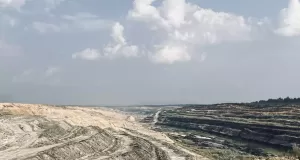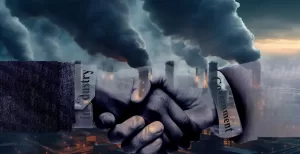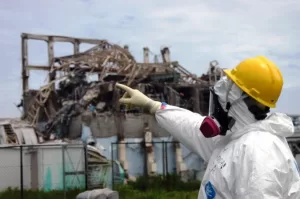An Adivasi Writes Off the Village
[Name: Vajesinh Pargi. Born: 1963. Village: Itawa. District: Dahod, Gujarat. Community: Adivasi Panchamahali Bhil. Family members: Father, Chiska Bhai. Mother, Chatura Ben. And five siblings of whom Vajesinh is the eldest. Family’s livelihood: agricultural labour.
His inheritance from being born in a poor Adivasi family, in Vajesinh’s own words: ‘darkness from the womb of his mother.’ A ‘desert-full of loneliness.’ A ‘well full of sweat.’ Also, ‘hunger,’ with ‘the blue of gloom,’ and ‘the light of the fireflies.’ There was also a love for words that came at birth.
Once, caught off guard in the middle of a fight, a bullet ripped through the then young Adivasi’s jaw and neck. His voice too suffered with that injury from which he never recovered, even after seven years of treatment, 14 surgeries, and an insurmountable debt. That was a double blow. Born into a community that had little voice in the first place, the one he was personally gifted with was also now seriously damaged. Only his eyes remained as sharp as ever. Vajesinh has been the finest proofreader Gujarati literature has seen in a long time. His own writings, however, have never received their due.
Here is a Vajesinh poem written in Panchamahali Bhili in Gujarati script, reflecting on his dilemma.]
● ●
I don’t like to die
When the mountains collapsed,
the ravines dried up,
villages invaded the forests,
days of roaring and ululating
were gone,
gone with the wind.
Not a breath was left
in my lungs, not enough to play a flute;
and yet this stomach was hollow at the pit.
That’s when I left this village behind
and went into exile…
In a foreign country,
in some crazy city,
where no one cared for us –
we, the lowly people.
Lest we send our wild roots
down there,
the city-folks gave us no land,
not an inch of space,
not even to rest our feet.
We lived inside plastic walls,
shivering in the cold,
sweating in the heat,
soaked in the rain.
No shelter for us
in the bungalows we built.
Auctioned at the crossroads,
selling our labour
like livestock,
we were sold for a pittance.
Piercing my back,
like the sting of a scorpion,
are the barbs of
mama and langotiya –
the uncouth and Adivasis in loincloths.
The poison rushes to my head.
I feel like leaving this hell,
this daily humiliation,
this suffocating life.
I want to return to my village,
to rest my head in its lap.
But there lurks a snake,
hunger hissing,
waiting to devour us.
And I,
I don’t like to die…
(Translated from Panchamahali Bhili by Pratishtha Pandya. The poet is presently battling the fourth stage of lung cancer in Dahod’s Kaizar Medical Nursing Home. Courtesy: PARI. People’s Archive of Rural India (PARI) is both a living journal and an archive. It generates and hosts reporting on the countryside that is current and contemporary, while also creating a database of already published stories, reports, videos and audios from as many sources as possible.)




